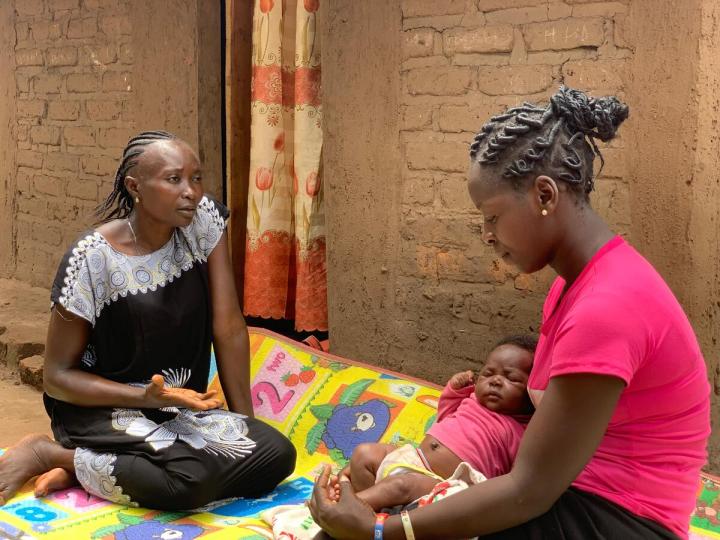
International Women's Day
International Women's Day
The theme for this year's International Women's Day on March 8 is #BreakTheBias
Together, we can all break the bias - on International Women's Day and beyond. Learn more about how World Vision is working with women and men all over the world to ensure women are valued and treated equally.
We know supporting women’s empowerment and accelerating gender equality are vital to a country’s development. It's also essential for raising safe and healthy children. Learn about World Vision's research demonstrating how gender equality and women's empowerment are prerequisites for child wellbeing. Read about five important links between women's empowerment and child well-being. And learn more about our work to empower women and their families through the innovative gender-transformative framework for nutrition.
Read about some inspiring women who are working to #BreakTheBias in their communities.
- Read about Josephine (in photo above, left), who champions women’s health issues in her community as vice-chair of the health committee, and works to increase women’s participation and leadership. She shares her own story with the women she counsels: “I lost three of my children due to lack of information and home delivery. I would have been a mother of eight by now. We did not have committees such as this to support us and raise awareness on maternal and child health.” “With strong women leaders like Josephine in the community supporting and advocating for women’s well-being, a mother will no longer lose her child or endanger her life,” says Rosetta, a mother of three who was counselled by Josephine.
- Learn about 16-year-old Hira’s journey with Adolescent Girls Clubs in rural Bangladesh, and how the clubs helped her mental health during the COVID-19 lockdown:
- In another area of Bangladesh, the Adolescent Girl Power Group model provided girls with both life and livelihood skills to address the risks and vulnerabilities they face including early marriage, pregnancy, and school dropouts, and to harness their potential as community mobilizers and change agents. Download the report on how these groups helped to build resilience in adolescent girls during COVID-19 here.
- Read about 18-year-old Aniiri, who was married at 14 and now has two children. She participated in training on family planning, antenatal care, and immunization and is now an active member of a weekly group of young women who help raise awareness on gender-based violence and early marriage. They also campaign for young mothers to go back to school and not allow their marital status to get in the way with their dreams:
- Read how female health promoters, like Joy, are fighting COVID-19 vaccine hesitancy in South Sudan. She conducts daily house-to-house visits, discussing the importance of vaccination for women and their families and addressing myths and misconceptions about the virus and the vaccine. As soon as government directives allowed for vaccination of pregnant and breastfeeding mothers, Joy was the first person to get vaccinated.
- Jenty is a leader of the mother-to-mother support group in her community in South Sudan and passionate when advocating for women and girl’s health. “When I joined the group, I was able to reach out to 20 young mothers who were pregnant and dropped out of school and guide them make decisions,” she says. “Twelve of them are now aware of the value of family planning and enrolled back to school. I hold meetings with mothers to guide them as many are unaware of the danger they face without proper child spacing.” Jenty, expecting her second child at age 20, shares her own experience with other young mothers: “I knew nothing about family planning. At a young age I got pregnant and dropped out of school in primary eight. I decided to practice family planning so I can plan for my family, and go back to school. If not for the COVID-19 pandemic, I would have completed senior four by now. But I am continuing my studies after my delivery.” Jenty is leading by example, while educating women about their choices and empowering them to take charge of their own health.
- Research shows the link between children's wellbeing and women's empowerment. Read World Vision's Empowered Women, Empowered Children Summary Brief – a study that measured the empowerment of 1,336 women on a personal, relational and environmental level across 10 contexts in Middle East and Eastern Europe, along with indicators of their children’s well-being and the connection between the two.